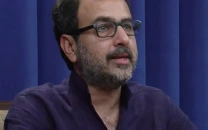[UN]doing the damage

[UN]doing the damage
Mun is a common platform on which high school students from across the world are trained in communication skills to become leaders of the future. The conference aims to train people from different cultures on how to represent themselves and their concerns through dialogue. TIS students designed a replica of the system that exists at the United Nations and asked a number of schools to send students between the ages of 14 and 16 as delegates so they could represent each country at their three-day conference.
“It teaches you to come to come out of your cave and tap into your potential,” said Muntis Security Council vice president and Policy and Training undersecretary general Shahzeb Hussain. Last year, 150 delegates from 31 schools across Pakistan as well as 75 other countries attended the Modeling United Nations by The International School (Muntis) conference.
This year, the number skyrocketed as 342 delegates from 24 schools in Pakistan attended the Muntis conference in January 2010 along with delegates from 106 other countries. Students of the organising committee are responsible for logistics, finance, information services, public relations, the registration of delegates and other details at the conference. “[The conference] basically teaches you to arrive at one common solution. We could call this our Inspiration,” said Muntis secretary general Shirin Mehri.
The organisers of the Muntis conference wish to teach young students how to solve issues through cooperation, debate, decision making, compromise, research, confidence and presentation. Through themes like “Interdependence: it’s a small world, after all” and “Technology: Together we can reboot our world”, Muntis aims to establish a sense of mutual respect and understanding between students of various countries. Muntis representatives felt, however, that their endeavours were marred with looming threats to the safety of foreign delegations attending the conference.
“While security remains the main issue for foreign schools, local schools are just too casual about it,” said Shahzeb. However, the conference itself was a great way for students to take up the role of leaders and representatives and debate over serious issues, keeping research and developing opinions in mind, before passing a resolution through voting. This year, the team representing Russia received the most number of votes for its resolution to take over Palestine against the team representing the US.
“In between the serious sessions, students would crack funny jokes, make up conspiracy theories and play different roles, which were usually quite amusing,” said Zeeshan Minhas, an organiser. “At times there were many hurdles. People would not get sponsors on time, the network or the printers would not work or people would get out of hand. But we managed all the stress internally,” Zeeshan added.
“It not only gives you confidence and knowledge about the main world issues, but actually allows you to believe that wars can be prevented through dialogue,” said Kahzeime Ali, a delegate who represented Russia in Muntis Security Council. Many students already seemed excited about next year’s conference.
“We plan to make it even bigger next year by calling in about 450 or more delegates,” Shahzeb enthused. The concept that has been so successful for TIS is now being adapted by educational institutes across the city. The Institute of Business Administration recently established MUNIBA, Shaheed Zulfikar Ali Bhutto Institute of Science and Technology came up with ZABMUN and Rotary Club founded Rot-MUN.



















COMMENTS
Comments are moderated and generally will be posted if they are on-topic and not abusive.
For more information, please see our Comments FAQ